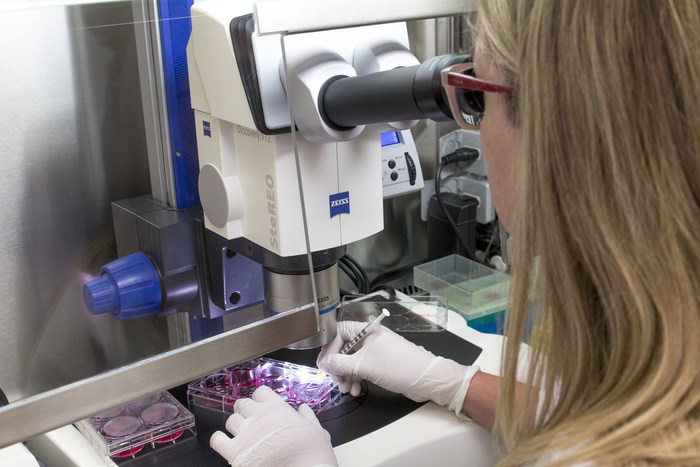Goodbye arrhythmias and cardiac arrests. For the first time, a new method to repair the infarcted heart highlights the positive effects of engineered stem cells. The results of the study, entitled “Gene editing to prevent ventricular arrhythmias associated with cardiomyocyte cell therapy”, have been published in Cell Stem Cell. A study co-ordinated by Alessandro Bertero, head of the Armenise-Harvard laboratory of developmental genomics and cardiac engineering at the Department of Molecular Biotechnology and Health Sciences of the University of Turin, and by Professor Chuck Murry, director of the Institute for Stem Cell and Regenerative Medicine of the University of Washington.
In recent years it has emerged that transplanting heart cells differentiated from stem cells has great therapeutic potential, but exposes the patient to a very dangerous transitional period, characterized by severe heart rhythm disturbances, such as arrhythmias. In this innovative study, the molecular mechanism that leads to an incompatibility between the still ‘immature’ transplanted cells and those of the adult heart was discovered. And this affects the ability of immature cells to beat rhythmically in a similar way to adult pacemaker cells but differently from the rest of the heart. The results of the research show, however, the absence of arrhythmias linked to transplantation when genetic editing methods are applied to engineer stem cells.
The publication of the study comes immediately after the news of the funding of over 7 million euros, awarded by the Ministry of University and Research to the UniTo Department of Biotechnology and Health Sciences as part of the tender for the Departments of Excellence, obtained thanks to the project Expect (EXcellence Platform for Engineered Cell Therapies). The five-year project (2023 – 2027) focuses on anticancer immune cells already validated in clinical practice.
breaking latest news © Copyright ANSA

